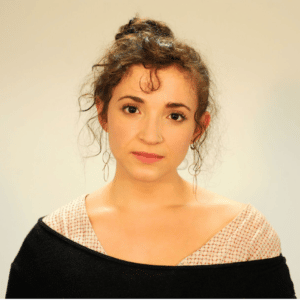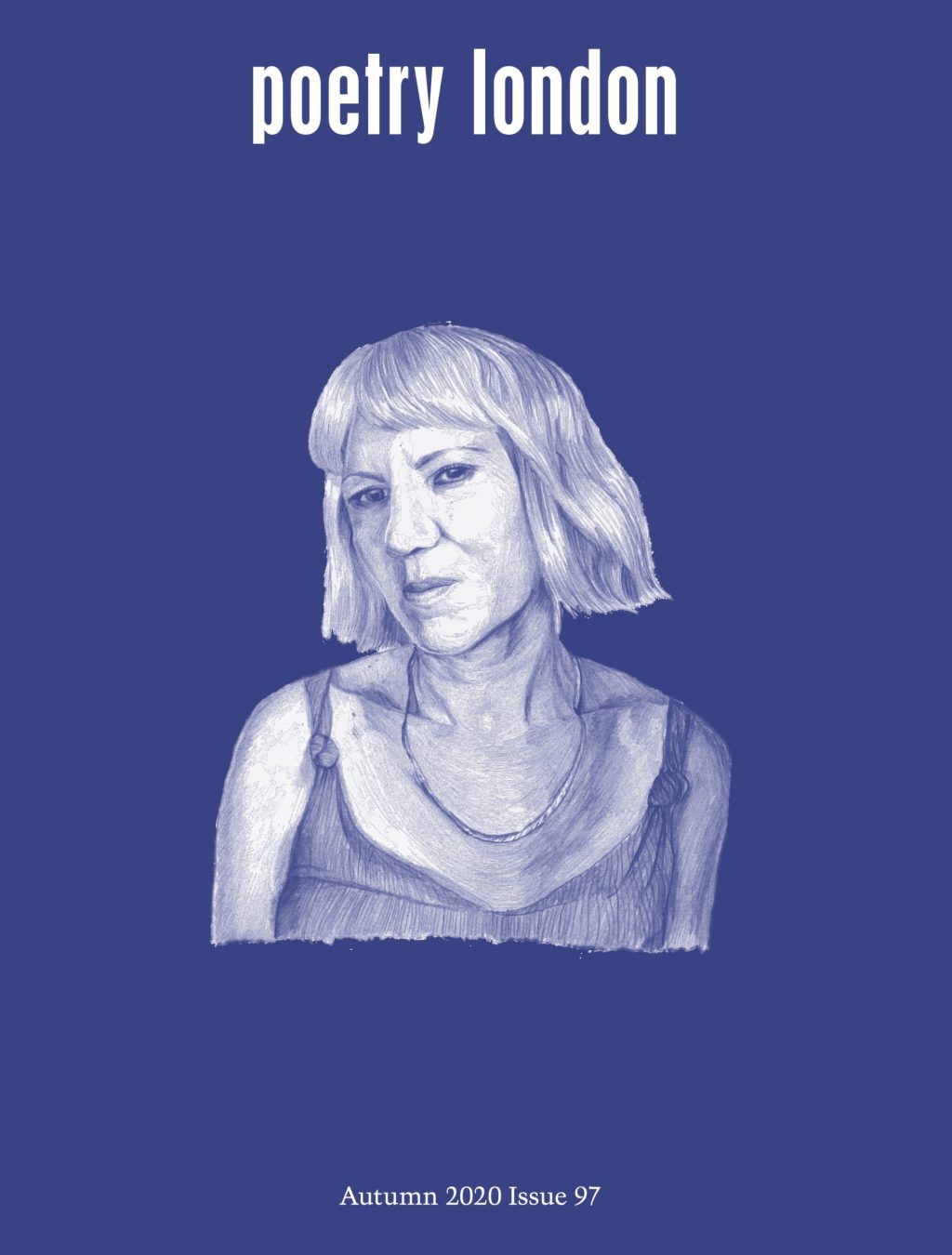An Interview with Eleanor Penny, winner of the Poetry London Prize 2020

PL: Firstly, huge congratulations on winning 1st prize in this year’s competition! Ilya was extremely impressed by the quality of the entries, so this is a great achievement. Can you tell us a little about when and why you wrote this poem, and why you felt it was the right one to submit to the prize?
Eleanor Penny: Thank you! I’m still reeling from the idea that Ilya Kaminsky has even taken the time to read my work, let alone like it – and it’s wonderful to be in the company of some amazing writers on the list. This poem is a third-stage evolution of something I wrote in a workshop led by Rachel Long – back in last December, in an evening of total exhaustion where trying to write felt like pulling teeth. The writing exercises were brilliant, but something just wasn’t clicking. Then Rachel very generously told me that in those moments it’s doubly important to practise the discipline of writing through difficulty, to stay with the trouble, to squeeze any blood you can from the exercise – basically, to write anything. And this is the anything that I wrote. A sort of semi-failed sonnet, or a prosey sonnet with a couplet hot-glued onto the tail end. It gave me space to think about the fractiousness of wrangling over shared memories, the fundamental weirdness of childhood, and how a sense of home warps over time. I chose this poem to submit a poem that felt representative of some newer I’ve been playing with – more dream-logicky and lyrical, with the cadences of memory. At least that’s the idea. Essentially, I wanted to get the newer stuff under someone’s nose and see what they thought of it.
PL: It’s very interesting to hear about how this poem came about, and I love the idea of pushing through those difficult moments to just write. Do you often use writing exercises and do you find that they result in ‘finished’ poems like this one, or do you generally use them as a way of experimenting and trying out ideas?
EP: I love writing exercises as ways of exploring new ways of thinking, generating new clashes and constellations of ideas. I very rarely teach with exercises I haven’t road-tested on myself. I love them as high-conceit games or mini-puzzles which allow you to essentially trick yourself into new modes of thinking and writing. They’re incredibly helpful for challenging the writing reflexes and habits that can ossify and stagnate over time into a frustrating roster of personal cliché. When you try and write about something as overwhelming and overwritten as, say, love or grief or home going – it’s easy to lapse into the kind of familiar imagery and patterns that reveal nothing to yourself or the reader, that can feel hack or sterile or impersonal. Writing exercises, done right, can allow you to shin down the chimney or hammer open a new window or tunnel under the foundations of the same house. And the inherent irreverence of a lot of exercises allows you to shake off the po-faced attitudes towards craft that can be intimidating and alienating to even the most experienced writers. You have to start with the silly thing, or the difficult thing, or the obvious thing – and trust that that thought will take you somewhere interesting if you follow it long enough.
Sometimes they’ll turn into poems – and much more often, they won’t. But they’ll still generate images or thoughts that I’ll revisit, refine, try to evolve. The average poem I write is a monstrous frankenpoem of like six other pieces I’ve written sort-of-about the same thing, about the same broad idea that has clearly got its teeth in me and won’t let go until I eventually manage to write it properly.
PL: How have you found this strange time of lockdown and has it had an impact on your writing – both in terms of approach and content?
EP: In many, many senses I have been extraordinarily lucky because I don’t have to risk my health as a frontline worker. I’ve had to shield for large chunks of time due to a medical condition, which has left me climbing the walls – I can rarely sit still for five minutes together, let alone five months. But thanks to funding from the Arts Council, I’ve had the opportunity to channel that nervous energy into writing the scrappy first draft of a novel, and gearing up some other projects. Still, it’s been an irreducibly painful and tumultuous time for the world – and it’s been difficult to focus on creative work against the backdrop of that kind of ambient dread about the world in general and my loved ones in particular – not to mention the turmoil of other work collapsing. Not least because it can feel a little self indulgent to delve down ginnels and cul-de-sacs of culture to write ghost stories and magic realism whilst a pandemic is raging on around us. But I’ve been reading loads of poetry – and through that, I guess, giving myself permission to think about how those moments of reducible joy and connection we find through literature are fundamental to helping us army-crawl through the mudpits of crisis in which we find ourselves. Writing through and despite the current moment has ineluctably pivoted my writing and teaching towards the question of what we build in the ashes of the present; how can poetry be a way into that first step of imagining the world otherwise. Plus, the massive COVID-induced crisis in the arts sector is threatening the kinds of institutions that have been professional and personal lifelines for me so many others – and I want to be a part of the solution.
PL: What does it mean to you to have won 1stprize in this competition, and has it changed any of your plans or ambitions for the year ahead?
EP: It is so wonderful to achieve this kind of recognition. I’m incredibly grateful to Poetry London, and to the judge llya Kaminsky for giving me the opportunity to share my work. And it has been (in the best possible way) profoundly surreal to know that so many people have enjoyed and connected with my work. I’m really excited about the huge chunk of time that the prize money gives me to focus more on creative writing – it will be funnelled right back into more poems, so please do blame Ilya for encouraging me.
PL: Finally, can you tell us a little about your forthcoming collection, and will this poem be part of it?
EP: Pandemic chaos allowing, the pamphlet will be published soon by flipped eye poetry publishing house. I’ve been working on it for a while now with the incomparable editor and mentor supreme Jacob Sam-La Rose, the head of the Barbican Young Poets programme where I learned my ABCs of craft. Without his teaching, guidance, and editorial nous, this work would just flat out not exist – and I know I’m far from the only writer who can say that about him! This is in fact pamphlet version 2.0, after I did a big rewrite at the beginning of last summer. I’m trying my best not to do it again – to reign in my bad habit of tweaking and editing poems until someone wrestles them out of my hands and locks me in a dark room for a bit to cool off.
This poem will indeed be in it, along with other poems about cruelty, romance, violence, motherhood, small gods, pig hearts, cannibalism and of course Britney Spears.


